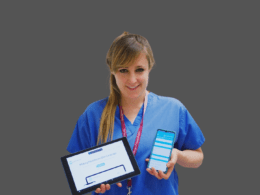Welcome to Global Good’s Impact Interview series. This interview series is designed to tell the stories of the people and companies working to drive impact in society. If you want to be part of the Impact Interview series, submit an interview today.
Can you introduce yourself and tell us about your role?
I’m a market researcher, games publisher, tech writer, and serial entrepreneur who is currently working at the intersection of frontier tech and social impact.
We created Virtuleap after years of my researching emerging technologies and reporting on my findings for blogs like VentureBeat and TechCrunch. My greatest insight was that VR’s most critical application is in two sectors: healthcare and education.
Virtuleap combines neuroscience and virtual reality to help increase attention levels and address cognitive illnesses, disorders, and learning challenges.
What are some of the most pressing social issues that Virtuleap is working to address?
I believe we are facing a ‘cognition crisis’, particularly felt in the youngest generations growing up exposed to “TikTok” dopamine-gamified social media mechanisms, which deteriorate our sustained attention skills. Our technology is designed to help counteract these influences with our go-to-market strategy focused on K12 schools as well as the productivity and wellness programs at companies.
At the same time, our technology has widespread applications across a range of therapeutic areas not limited to learning challenges but also cognitive illnesses like Alzheimer’s disease, in which our focus is to help create greater awareness of the development of pre-MCI disorders such as subjective cognitive decline and thereby help the population steer away from these unfortunate health outcomes years, maybe even decades, before the early onset.
How does Virtuleap measure the impact of its work in creating positive change?
At this stage, mostly through our partnerships with research institutes, universities, hospitals, and academia at large in running clinical studies across a wide range of therapeutic areas.
For example, in the ADHD pilot that we published last summer, we found evidence of therapeutic effects in regularly using our tools in a population of university students with attention deficits.
In your opinion, what impact will technology have in creating a better future?
It is a double-edged sword that we need to observe and evaluate more and more critically as it increasingly blends into all aspects of society. There are many good applications, but we have to not lose sight of what benefits the human condition the most, which is in my opinion usually not technology-based.
My interests in how frontier technologies can best be used and how they can aid our ability to be inspired, connected, and create extra time to spend on what brings us the most joy.
What advice do you have for other companies looking to use tech for good and positively impact the world?
Start with anything. Let reality give you feedback, and the iteration process, once kindled, will take you where “it” needs to go.










